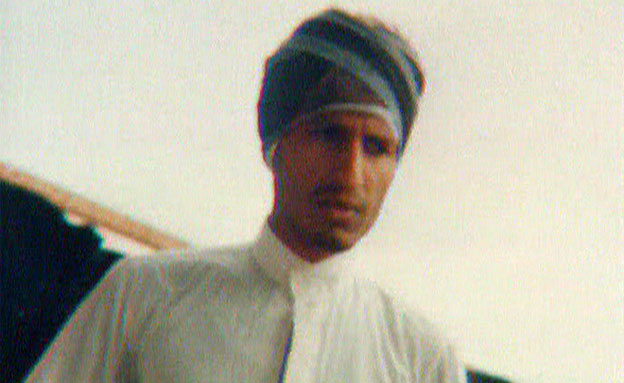Mohammad Deif was born in 1965 in the Khan Yunis refugee camp in the Gaza Strip. His family traces their roots back to the village of Kochva, which existed in the Ashkelon area until 1948. During his formative years, Deif became associated with the Muslim Brotherhood.
As he pursued higher education, Deif enrolled at the Islamic University in Gaza, where he actively engaged with the "Islamic bloc" and represented the bloc's interests in the university's student council. It was during this period that Deif began his political journey, laying the groundwork for his future involvement in radical Palestinian affairs.
IDF dropped notes at the "refugee" camp in Gaza City, warning residents to vacate south
— Hearts of Israel (@HeartsForIsrael) November 3, 2023
In response, the "innocent" "civilians" of the camp marched chanting we won't leave & "we are the men of Mohammed Deif" (Hamas chief terrorist)
You chose to fight.
Game on!
Let's fight!!! pic.twitter.com/toFz8Et2tw
However, Deif's life took a dramatic turn when he joined the ranks of the Hamas military apparatus at the onset of the first intifada, a series of Palestinian uprisings against Israeli occupation. In May 1989, he faced his first major obstacle when he was arrested and subsequently sentenced to 16 months in an Israeli prison. This period of incarceration would serve as a defining chapter in his life, further fueling his commitment to the Palestinian cause.
In 1991, Deif officially became a member of the Az ad-Din Al-Qassam Brigades, the armed wing of Hamas. Here, he embarked on a trajectory marked by significant mentorship under the Palestinian terrorist Yahya Ayash, also known as "The Engineer." Ayash was the mastermind behind many of Hamas's deadliest attacks. Tragically, Ayash's life was cut short in 1996 when he was assassinated.
In the wake of Ayash's death, Deif stepped into the role of commander for Hamas's military arm in the Gaza Strip, a position that would place him squarely in the crosshairs of the Israeli security establishment. Throughout the years, Israel made numerous attempts to assassinate Deif due to his prominent role in Hamas and his involvement in violent activities against Israeli interests.
One of the most notable assassination attempts occurred on August 22, 2001, when Israel targeted Deif, along with his deputy, Adnan Al-Ahol, Salah Shahada, and other senior officials. However, they narrowly escaped the attack, eluding capture. Subsequent attempts to eliminate Deif proved equally elusive, with his life spared but not without severe injuries, including the loss of an eye and a crippled hand in a 2002 airstrike.
Deif's resilience was tested once again on July 12, 2006, when an Israeli Air Force attack severely wounded him during his stay in a house in Gaza. Following the strike, Deif's hands and feet had to be amputated, and he has since been confined to a wheelchair. Tragedy struck Deif once more on August 19, 2014, when an Israeli Air Force fighter jet dropped massive bombs on the house of Ahmed Yassin Dalo in Gaza City's Sheikh Radwan neighborhood, where Deif was located. This attack resulted in the loss of one of Deif's wives, their 3-year-old daughter, and their 7-month-old son. In retaliation, Hamas escalated rocket attacks on Israel.
85% of the soldiers in our units are orphans whose parents were martyred by the occupying state. Today, those children have grown up and their hearts are burning with the fire of revenge!
— Muhammed Danyâl (@Danyal_1453) October 25, 2023
| Abu Ubayda, spokesman of the al-Qassam brigades pic.twitter.com/Yi2V9NJXLn
Despite the ongoing attempts on his life and his extensive injuries, Deif's presence continued to loom large in the Hamas organization. Israeli intelligence was often conflicted about his fate, at times suggesting he might still be alive, while other assessments hinted at his demise.Former IDF Chief of Staff Benny Gantz assessed: "Occasionally you see signs as if the person exists, occasionally there are signs as if the person does not exist. In my opinion, he is with us.”
In 2015, it was officially confirmed in Israel that Deif was indeed alive and actively involved in decision-making within the military wing of Hamas. According to Israeli journalist Yoni Ben Menachem, Deif played a pivotal role in orchestrating the Hamas attack on Israel on October 7th, underscoring his enduring influence within the organization.


